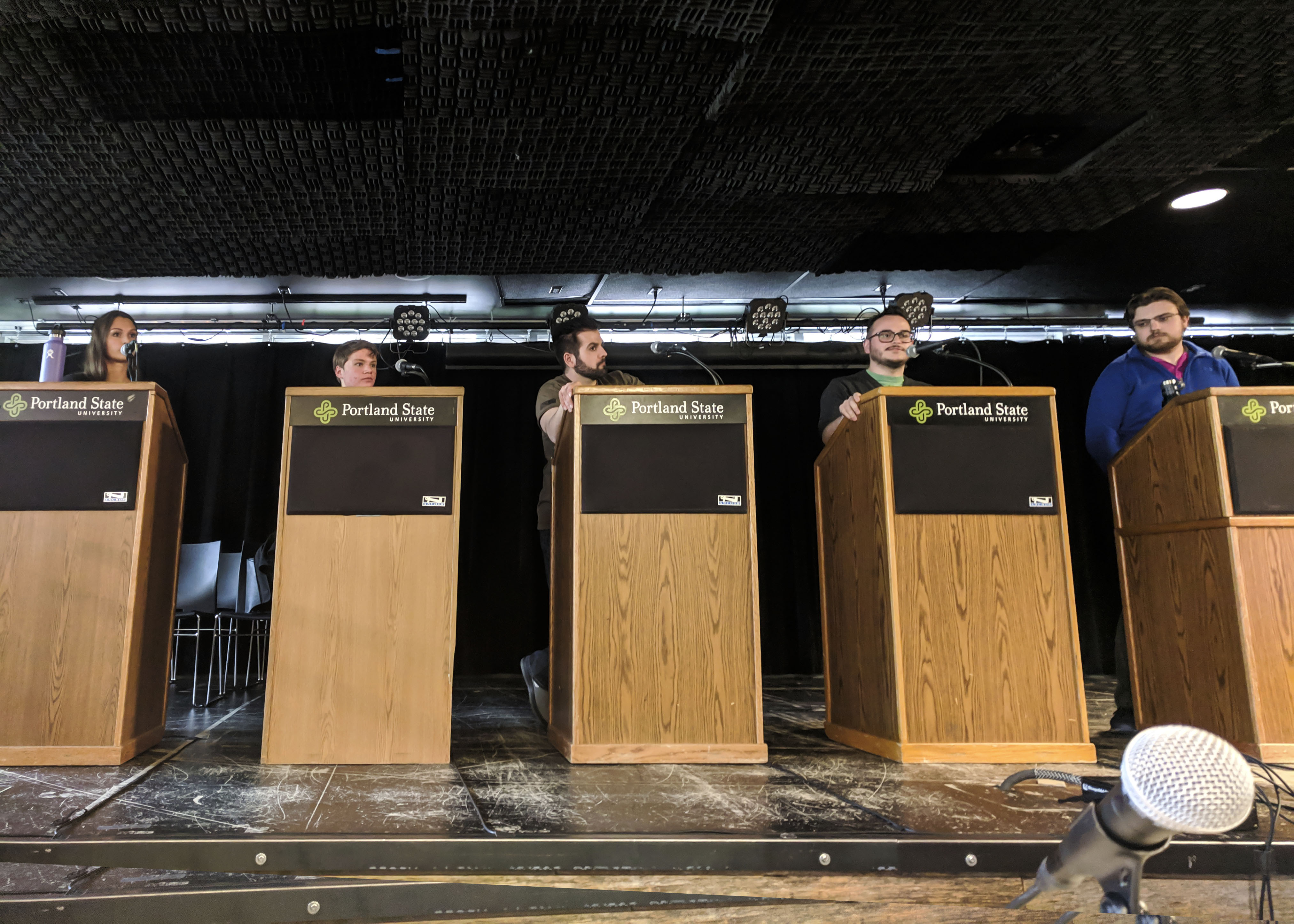Panel examines free political broadcast time
A forum Wednesday night on providing free broadcast time to political candidates found general favor for the idea but brought cautions that practical application may present formidable problems.
The audience of about 100 in the Urban Center galleria consisted almost entirely of those in favor of the concept of a federal requirement for free air time. The panelists all showed sympathy for the idea, but some warned free time may not solve the current practice of candidates “buying” their victories with big media expenditures.
The chief argument in favor of federal free-air time was that the broadcasters paid nothing for their television channels and radio frequencies and these channels are owned by the public. Hence, broadcasters owe the public the opportunity to hear all candidates and issues free of charge.
The dissenting arguments boiled down to a few main contentions. Putting on free political programs or spots may only motivate viewers to switch channels. Having stations carry free political advertising won’t necessarily motivate people to vote more. Giving candidates free political exposure may only make it easier for candidates with money to buy additional paid advertising, which will only strengthen their campaigns.
One panelist also predicted that if a federal free-air-time law passes, its constitutionality will be challenged in court and quite possibly declared unconstitutional.
Many in the audience took heart in the news that yesterday U.S. Senator John McCain introduced the Feingold-McCain bill for free air time. If passed, the legislation will require all stations by law to honor two policies.
First, the law would require all stations to provide up to two hours a week of free political time in fringe prime time or prime time, to be programmed as they chose. Second, there will be a voucher system. Each candidate or issue that can raise $250 in campaign funds may receive vouchers to buy time at a three-to-one ratio of free time to paid time.
The complexities of the issue were illuminated by Ian McDonald, a Portland State University political science master’s candidate. He demonstrated how Gordon Smith’s campaign for re-election to the U.S. Senate was able to outstrategize the campaign of Democrat Bill Bradbury by early media planning. As a consequence, Smith is now able to run his campaign effectively using television spots lower in cost than those which Bradbury must buy in order to be competitive.
Paul Taylor, executive director of the Alliance for Better Campaigns and former political reporter for the Washington Post, confined his presentation to showing a film urging the need for free time to level the campaign playing field. It included a plea from Walter Cronkite, considered the grand old man of television and honorary chairman of the alliance.
Cronkite was quoted as saying, “Free air time would help free our democracy from the grip of special interests.”
Mark Hass, democratic state legislator assented, in part, saying, “I totally agree there’s way too much money in politics.” However, he added, KATU – where he formerly worked as a news reporter – tried a feature known as Straight Talk, in which candidates got 60 seconds in prime news time to speak.
“It was a disaster,” Hass said.
Speaking of free air time, he said, “How actually do you put this into action? How about voters paying more attention? Voters have to take some responsibility.”
Tim Gleason, professor of journalism and communications at the University of Oregon, explained he favored free air time, but his role in the forum was to explain the position of the broadcast industry. He called for what he termed a “reality check.”
Broadcasters, he said, feel they’re being unfairly singled out. They are asking, why shouldn’t newspapers be required to give away free advertising space? Also, he added, broadcasters are saying, “The television spectrum may be free, but the helicopters are not.”
Broadcasters are asking how much control the government should have over the content of all communications media, given the media’s protection of free speech under the First Amendment.
Gerald Sussman, PSU professor of political science, reminded the audience, “When we do have elections, people are voting by not going to the polls. We need to put forward candidates people will vote for.”
He conceded a lot of paid air time comes from wealthy people and organizations, but reminded the audience, “Corporations have First Amendment rights, too.”
In the question period that followed, Taylor conceded that the Feingold-McCain bill may not represent a final solution. He compared the current situation to 1957, when the first small civil rights bill started the ball rolling toward more civil rights legislation. That snowball effect can be applied to the free-air-time concept, he suggested.




